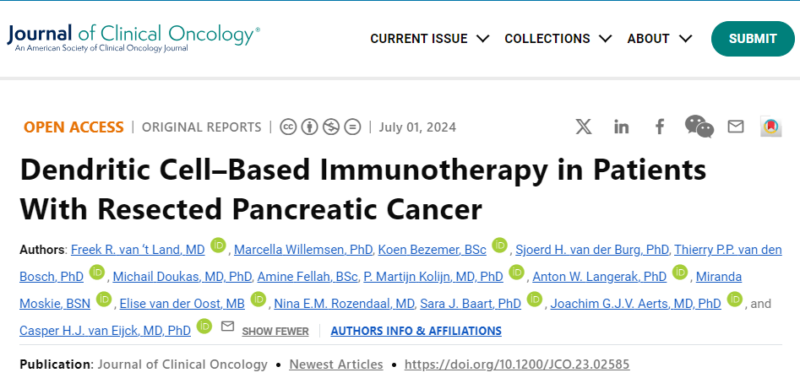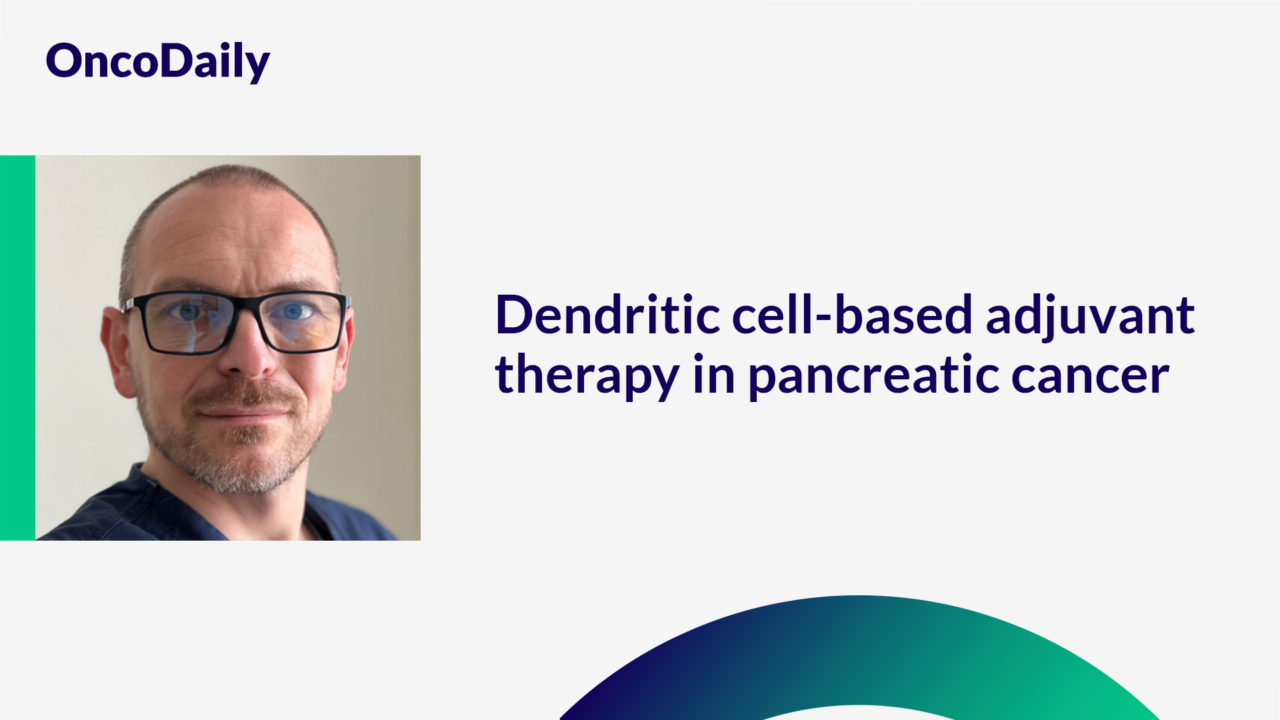Piotr Wysocki recently posted on LinkedIn:
“Freek R. van ‘t Land et al. published an interesting paper on adjuvant dendritic-cell (DC)-based immunotherapy in pancreatic cancer patients. The authors conducted a phase I/II study with a 2-year RFS representing a primary endpoint. Given an expected 2-year RFS rate of 40%, the authors assumed a 2-year RFS rate of ≥60% as a clinically meaningful improvement.
Pancreatic cancer patients, after completing standard curative treatment (neo/adjuvant chemotherapy and surgery [87%] or surgery alone [13%]), underwent leukapheresis to harvest CD141 monocytes. These were differentiated into immature DCs, loaded with allogeneic mesothelioma tumor cell lysate, and matured over nine days. They received three biweekly vaccinations, followed by two additional vaccinations at three and six months, with DTH skin tests and biopsies conducted post-vaccination if positive reactions occurred.
Results—Thirty-eight patients (47% male, 53% female, median age 62) participated in the study, with 74% receiving all five DC vaccinations. After a median follow-up of 25.5 months, 68% of patients had no disease recurrence, with an estimated 2-year RFS of 64%. The vaccination resulted in enriched circulating activated CD4 T cells and vaccine-specific T cell influx in lung metastasis resected from a patient who underwent pancreatectomy 34 months before and completed vaccination 11 months earlier.
The concept of vaccinating patients with non-immunogenic tumors to increase the recognizability of tumor cells and the activity of specific, anti-tumor immune responses is an old concept. However, improvements in DC engineering based on contemporary antigen loading protocols or genetic modification may facilitate vaccine development and its clinical efficacy. The paper by van’t Land FR demonstrates that a DC-based vaccine is safe and shows signs of immune system activation.
However, it is too early to get excited about the results since a 2-year RFS rate of ≥60% cannot be assumed a clinically meaningful improvement. According to the PRODIGE 24/CCTG PA. 6 trial, the 2-year RFS rate for patients with pancreatic cancer treated postoperatively with current standard therapy (adjuvant mFOLFIRINOX) is approximately 64%.”
Dendritic Cell–Based Immunotherapy in Patients With Resected Pancreatic Cancer
Authors: Freek R. van ‘t Land, Marcella Willemsen, Koen Bezemer, Sjoerd H. van der Burg, Thierry P.P. van den Bosch, Michail Doukas, Amine Fellah, P. Martijn Kolijn, Anton W. Langerak, Miranda Moskie, Elise van der Oost, Nina E.M. Rozendaal, Sara J. Baart, Joachim G.J.V. Aerts and Casper H.J. van Eijck.

Source: Piotr Wysocki/LinkedIn
Piotr Wysocki leads the Clinical Oncology Department at University Hospital and the Faculty of Oncology at Jagiellonian University-Medical College in Krakow, Poland. As an advisor to the Polish Ministry of Health, he shapes the national cancer strategy.
His clinical expertise spans the systemic treatment of breast, gynecologic, and genitourinary cancers, with a focus on developing innovative metronomic chemotherapy-based therapies for advanced cancer patients who have undergone prior treatment.
Read other posts by Piotr Wysocki published on OncoDaily.


